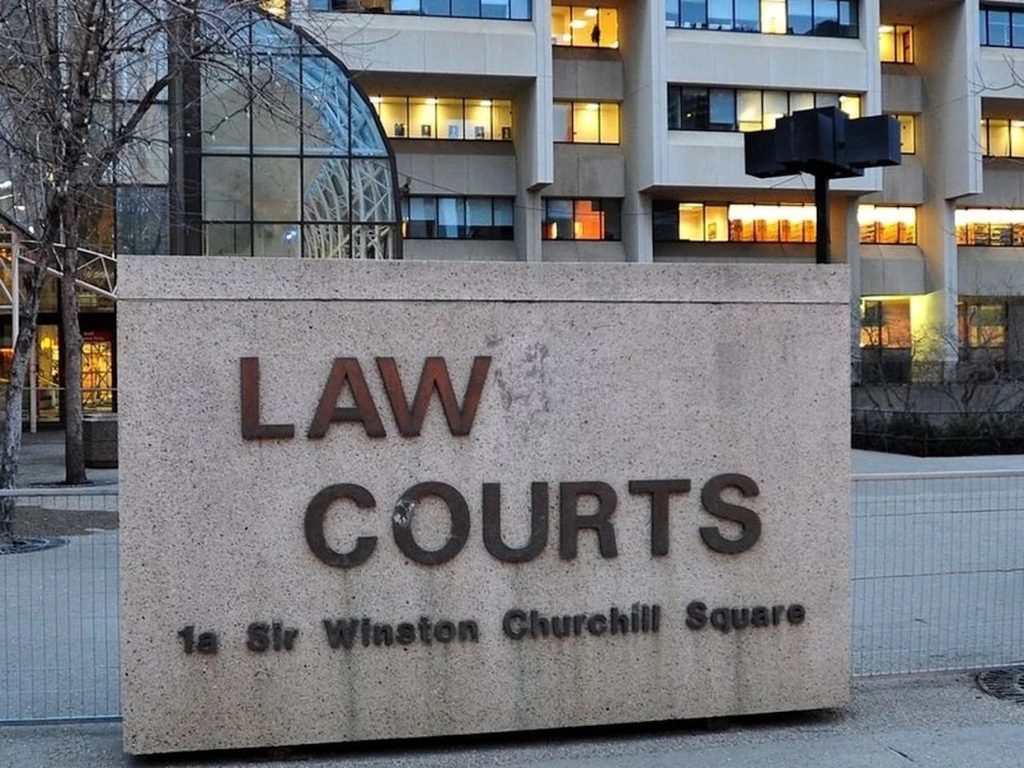Opinion: Make justice easier for sexual abuse survivors

It is estimated that 43 per cent of Albertans, 1.8 million people, have experienced at least one incident of sexual assault or abuse in their lifetime. Yet, only six per cent of sexual assaults in Canada are reported to police, which means very few people who commit sexual assault are ever held accountable.
On Nov. 19, the Office of the Federal Ombudsperson for Victims of Crime (OFOVC) released their report, “Rethinking Justice for Survivors of Sexual Violence: A systemic investigation.”
The investigation affirms what sexual assault services in Alberta have been hearing from survivors and witnessing through service delivery for many decades — that barriers to accessing justice persist and there is an urgent need to improve and enhance the justice response for survivors who make the choice to report what happened to them.
The recommendations that emerged from the investigation highlight the importance of sexual violence and trauma-specific services, trauma-informed responses, and continued enhancements and reforms across the system.
More than any other crime, those who experience sexual violence often feel shame, self-blame and humiliation as a result of how society and systems view sexual violence. So, survivors who do disclose their experience more often turn to family, friends, and sexual assault centres.
The impacts of sexual violence can take a significant psychological, emotional, and physical toll, making healing from sexual violence sometimes a lifelong journey. Regardless of when it happened or whether or not it was reported, sexual assault services are available to provide a continuum of specialized support to anyone who has experienced sexual violence.
For many, community-based, culturally responsive, sexual-violence-specific services feel far safer and more accessible than those connected to the justice system. Survivors who choose to seek justice deserve access to timely, specialized, and trauma-specific services.
Trauma-informed responses from individuals, communities, and systems integrate information, choice and control. Recognizing that sexual violence is an unexpected violation where a person did not choose what happened to them, and where someone else abused power and control — we must seek ways to provide survivors with information on sexual violence, their rights, options, and resources available.
Trauma-informed responses empower survivors to make their own decisions about reporting to police, accessing support, or other next steps.
When a survivor chooses to engage with the criminal justice process, information is key. It supports survivors’ informed decision-making and is available through services like sexual assault centres, public legal education, and independent legal advice programs.
Choice and control are supported when survivors are offered a range of reporting options, including supportive in-person reporting, online systems, third-party reporting, and the “third option” that allows evidence collection without immediately deciding whether to report to police.
When survivors can choose the pathway that feels best for them, they are more likely to seek help, and consider their options for seeking justice.
Improving the criminal justice response to sexual violence requires consistent, accountable, and survivor-centred practices. Practices such as ensuring access to testimonial aids like screens, support animals, or remote testimony, can help reduce re-traumatization and enable full participation.
It includes oversight and monitoring, for example, external advocate case reviews of police sexual-assault investigation files as well as monitoring of court proceedings and decisions. It means ongoing, specialized training on sexual violence for everyone involved in sexual-violence cases, from police to prosecutors to judges.
And it means exploring specialized sexual-assault courts that can embed expertise, improve efficiency, and support fair and full court proceedings.
While we seek to enhance access to specialized services and supports for survivors and improve and enhance the criminal justice response, we must also enhance access to alternative justice pathways — restorative or community-based approaches that focus on accountability, safety, and validation.
Corinne Ofstie is co-chief executive officer of the Association of Alberta Sexual Assault Services (AASAS).
As a provincial association, AASAS brings together a network of specialized sexual violence and trauma-specific services. Together they are many voices working towards one shared purpose — safe communities free from sexual violence.
Letters welcome
We invite you to write letters to the editor. A maximum of 150 words is preferred. Letters must carry a first and last name, or two initials and a last name, and include an address and daytime telephone number. All letters are subject to editing. We don’t publish letters addressed to others or sent to other publications. Email: letters@edmontonjournal.com
Bookmark our website and support our journalism: Don’t miss the news you need to know — add EdmontonJournal.com and EdmontonSun.com to your bookmarks and sign up for our newsletters here.
You can also support our journalism by becoming a digital subscriber. Subscribers gain unlimited access to The Edmonton Journal, Edmonton Sun, National Post and 13 other Canadian news sites. Support us by subscribing today: The Edmonton Journal |The Edmonton Sun.


